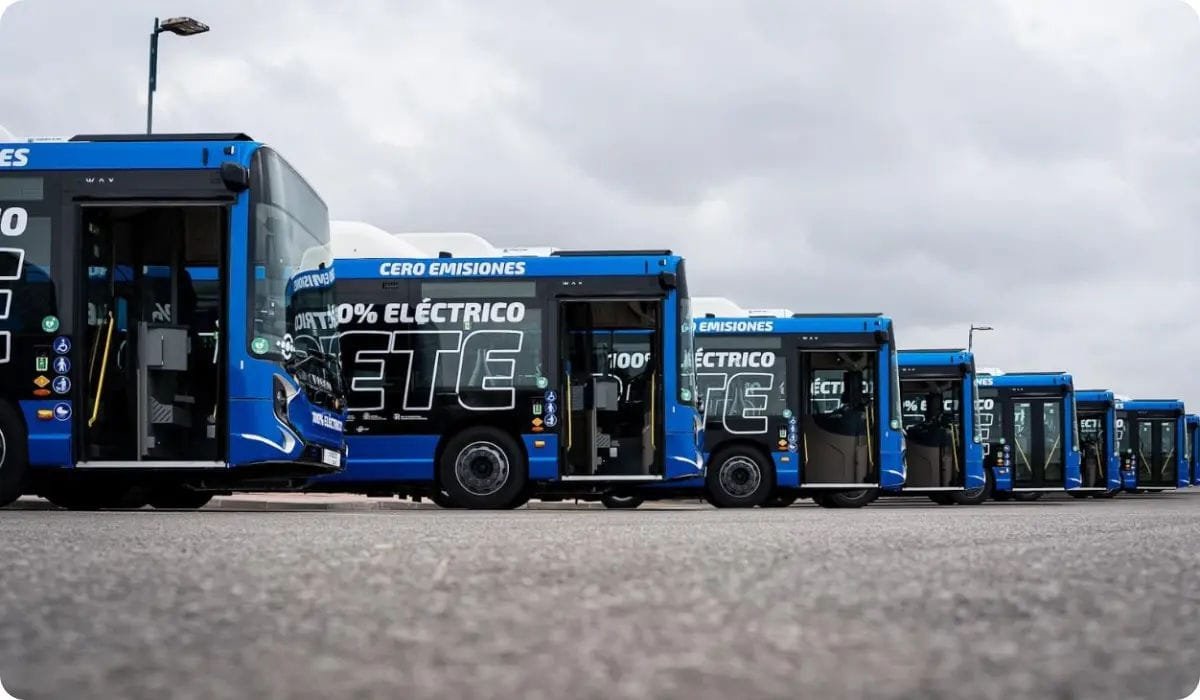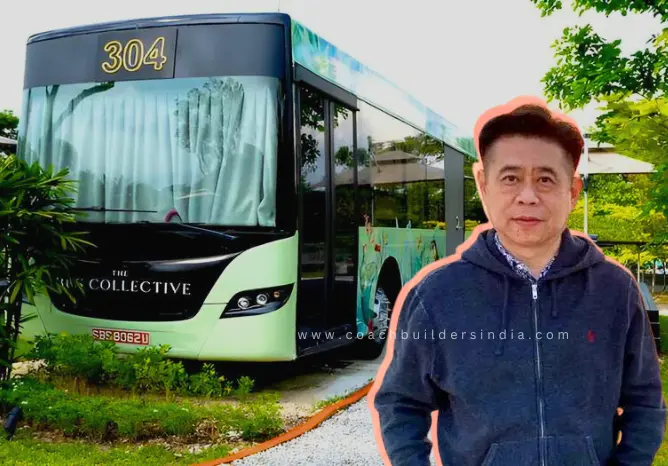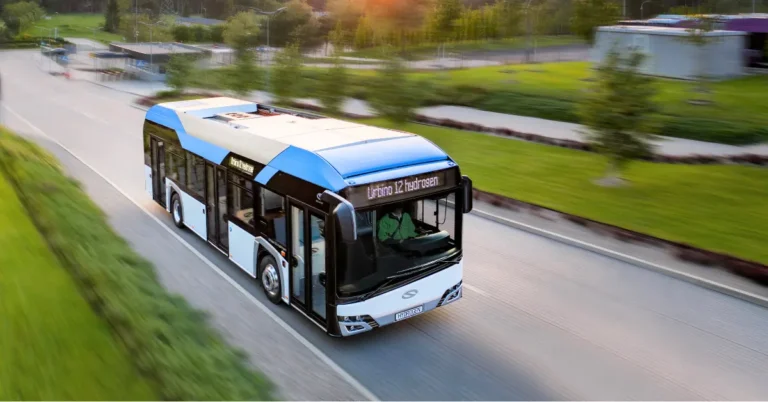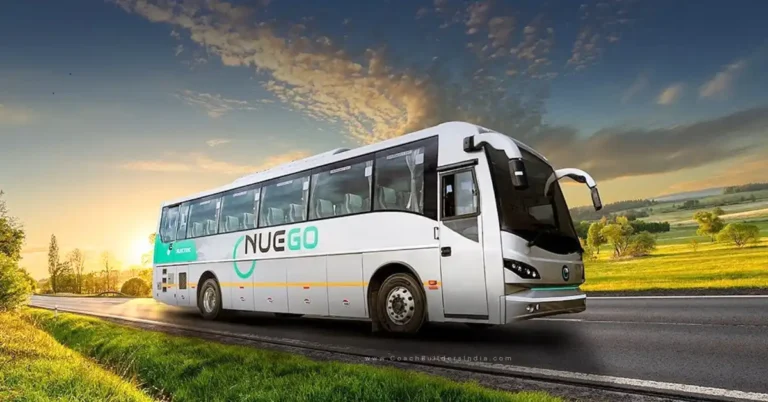Electrification of Bus Fleet Imperative for Net-Zero Target: Concordia University Research Outlines

In the relentless pursuit of fulfilling commitments established by the Paris Climate Accords, global leaders in politics and policy are steering their efforts toward decisive decarbonization initiatives.
At the forefront of these strategic actions is electrification of bus fleet – a pivotal stride towards achieving sustainable progress.
Carbon Footprint of Transportation: A Canadian Perspective
Canada’s transportation sector has long stood as a notable contributor, accounting for approximately 22% of the nation’s total greenhouse gas emissions.
The urgency to minimize reliance on polluting fossil fuels has never been more critical – an imperative directive in the collective journey to align with the goals articulated in the Paris Accords.
Being one of the 193 parties that became signatories to the Paris Agreement, Canada has formulated its distinctive 2030 Emission Reduction Plan.
This plan is devised with the ambitious goal of achieving a 40 percent reduction in emissions below the 2005 level by the year 2030. Part of this endeavor involves expediting the electrification of buses in urban centers.
Concordia University Outlines Framework for Electrification of Bus Fleet
Emerging from the dedicated research endeavors of Concordia University scholars is a seminal paper that has found its home in the prestigious pages of Transportation Research Part D: Transport and Environment journal.
The 120 page study is titled Achieving urban net-zero targets through regionalized electric bus penetration and energy transition.
It is spearheaded by Xuelin Tian, a PhD student in the Department of Building, Civil, and Environmental Engineering at the Gina Cody School of Engineering and Computer Science.
Owen Waygood from Montreal’s École Polytechnique, along with Concordia PhD students Zhikun Chen and He Peng, also contributed to this paper. Associate Professor Chunjiang An is the corresponding author of the paper.
This groundbreaking paper on electrification of bus fleet introduces an innovative analytical framework, meticulously designed to gauge the potency and envisage possible emissions reduction outcomes linked to policies focusing on the widespread adoption of electric public transit.
Comprehensive Analysis: Navigating Multifaceted Evaluations
Within this comprehensive framework lie multifaceted evaluations, ranging from the financial realm to environmental considerations.
These assessments span the spectrum – encompassing infrastructure enhancement costs, day-to-day operational expenditures, maintenance outlays, carbon pricing mechanisms, and the broader societal costs intricately woven into air pollution.
This investigative analysis has been rigorously conducted across four influential Canadian cities – Toronto, Montreal, Edmonton, and Halifax.

Compelling Insights: Emission Cuts, Financial Savings, and Societal Benefits
The outcome of this meticulous analysis is revealing and highly promising.
Transitioning to sustainable transport through the electrification of buses carries substantial benefits that extend far beyond the realm of environmental conservation.
Beyond the remarkable decrease in greenhouse gas emissions, this transformative move unlocks significant savings in maintenance expenses, subsequently easing the societal burdens related to the health implications of air pollution.
Data Collection and Model Validation: Building the Foundation
Initiating this study demanded meticulous data gathering across a spectrum of variables.
Ranging from scrutinizing the intricacies of vehicle composition – encompassing fleet makeup, service duration, fuel efficiency, and propulsion systems – to encompassing transition and resource assessments.
These considerations spanned longevity standards, survivability probabilities, and future demand predictions.
Research Validation: Testimony by Lead Author
The veracity of this study’s findings finds validation through the testimony of its lead author, Xuelin Tian.
When amalgamated with concurrent efforts to decarbonize energy systems, our research reveals an impressive reduction – ranging from 18.7% to 34.6% – in cumulative GHG emissions from bus fleets in Toronto, Montreal, Edmonton, and Halifax during the period spanning 2019 to 2030.
Xuelin Tian
Cost-Benefit Analysis: Financial Implications
Encompassing financial considerations integral to this transition, a comprehensive cost-benefit analysis was undertaken.
This all-encompassing evaluation spanned electricity generation costs, vehicle investments, carbon pricing, alongside operational and maintenance projections.
Moreover, the ramifications of air pollution and infrastructural development were rigorously integrated into the calculations.
A Strategic Path Towards Gradual Electrification of Bus Fleet
Considering the financial implications of transitioning transit agencies from conventional diesel-powered vehicles to electric buses, a strategic approach is advocated.
This gradual process of bus fleet electrification by embracing hybrid buses during the transitional phase – akin to strategies adopted by Toronto and Montreal – emerges as a mechanism to mitigate immediate fiscal burdens while advancing emission reduction objectives.
Furthermore, recalibrating operational parameters post-transition, such as daily mileage, serves as a prudent strategy to curtail operational overheads.
Select Cities and Comprehensive Strategies: Framing the Research Scope
The choice of cities under scrutiny – Toronto, Montreal, Edmonton, and Halifax – is deliberate.
These urban centers stand as exemplars of comprehensive public transit transition strategies. Tian acknowledges the earnest commitment of these agencies while recognizing the temporal span required for full electrification – a journey anticipated to span over a decade.
READ MORE
- Alexander Dennis Delivers Enviro500EV Double Decker Buses to Hong Kong’s CLP Power
- Top 5 Electric Buses at the UITP 2025 Summit in Hamburg
- IVECO BUS Supplies 13 Electric Midibuses to Malaga’s EMT Fleet
Sustainable Power Generation: A Determining Factor
Contemplating the substantial investments inherent in electric buses, financial limitations emerge as notable barriers to electrification of bus fleet on a mass scale.
However, the sustainability of upstream electricity generation emerges as a decisive factor. In the pursuit of substantial reductions in greenhouse gas emissions, a comprehensive shift towards renewable energy within the power sector emerges as an inescapable necessity.
This pivotal transformation to bus fleet electrification underscores the collaborative endeavors involving municipal transit agencies, bus manufacturers, and power entities.
Scalability and Transferability: Framework for a Cleaner Future
Tian accentuates the transferability of the formulated framework to other municipalities, contingent upon their adoption of bus fleet electrification strategies.
As long as these cities integrate their existing fleet data with prospective targets, they can execute a comprehensive cost-benefit analysis to inform future trajectories.
Conclusion: Empowering Change with Insight and Collaboration
In conclusion, the pivotal role of electric bus research in driving urban net-zero targets is undeniable.
Concordia University’s groundbreaking research on electrification of bus fleet catapults us into an era of informed decisions, underscored by data-backed insights.
This research reaffirms that progress is not only attainable through technological advancements but also through collaboration, fostering a harmonious convergence of research, industry, and policy.
Catch the Latest Bus Industry Updates, Exclusive Interviews, Bus News, and International Bus News on Coach Builders India. Download the latest issue of the The Bus Insider magazine for industry insights.










